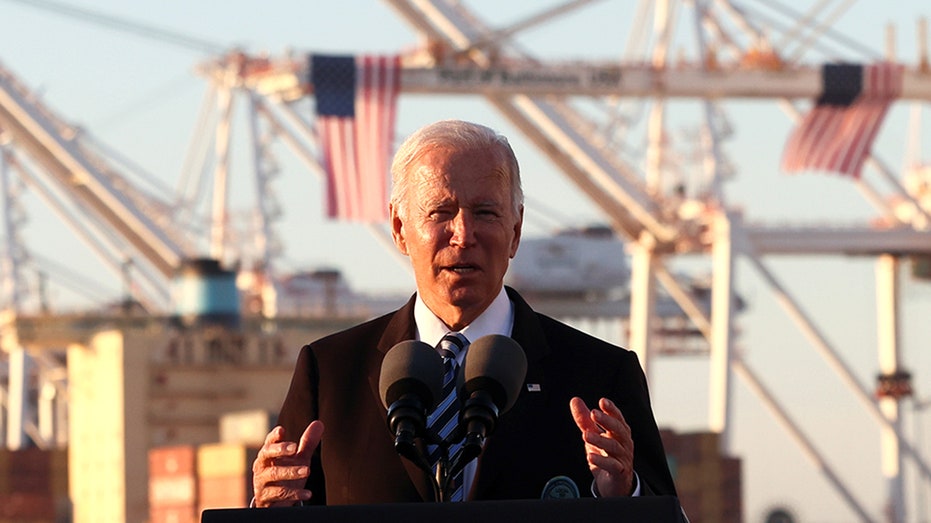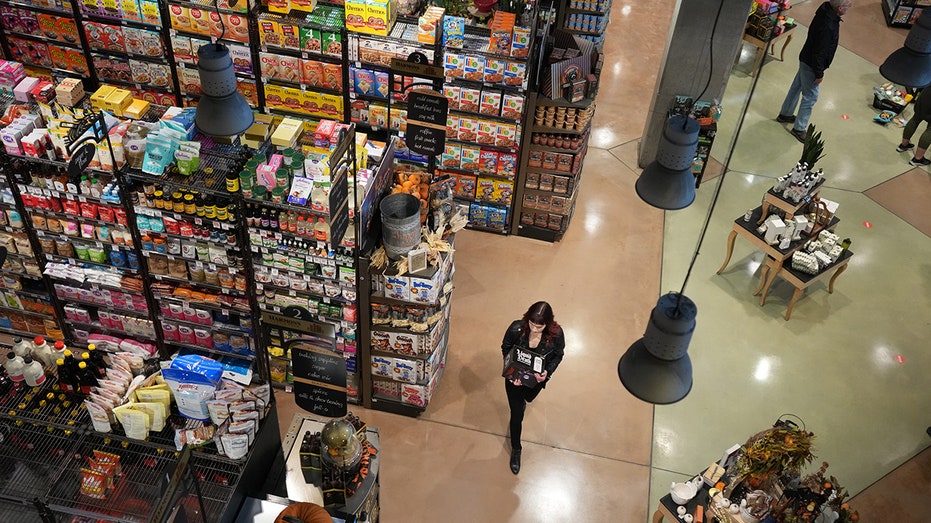Americans souring on economy as inflation hits 30-year high
Rising cost of goods weighing on Americans' economic outlook
White House pours more money into economy amid inflation concerns
Rep. Ashley Hinson, R-Iowa, provides insight into Biden’s Build Back Better plan.
Americans are growing increasingly pessimistic about the state of the U.S. economy as consumers grapple with a surge of inflation that has pushed the price of everyday bedrock goods to the highest level in years.
A new poll published by The Associated Press-NORC Center for Public Affairs Research found that only 35% of Americans now call the national economy good – a significant drop from September, when 45% said they viewed the economy as good. The current percentage is similar to views in January and February, before the widespread distribution of COVID-19 vaccines in the U.S.
A stunning 65% of Americans called the economy poor, despite solid job gains in October that saw the unemployment rate fall to a new pandemic low of 4.8%.
WHERE IS SURGING INFLATION HITTING AMERICANS THE HARDEST?
Democrats and Republicans alike are losing faith in the Biden administration's handling of the economy: Only 51% of Democrats in the AP poll expect the economy to get better, down from 70% earlier this year. Nearly three-quarters (74%) of Republicans expect the economy to get worse, a jump from 59% earlier this year.

The deteriorating outlook comes amid a monthslong inflation spike that has shown no sign of slowing down.
On Wednesday morning, the government reported that prices for U.S. consumers surged 6.2% in October compared with a year earlier. So-called core prices, which exclude the more volatile measurements of energy and food, rose 4.6% over the past year. Both are the largest increases since 1990. From September to October, prices jumped 0.9%.
Rising inflation is eating away at strong gains and wages and salaries that American workers have seen in recent months (average hourly wages in the U.S. actually fell 1.2% last month compared with October 2020 when accounting for inflation).
The price squeeze has been bad news for both Biden administration officials as well as Federal Reserve policymakers, many of whom have been downplaying the recent spike in consumer prices as "transitory" and likely to abate as pandemic-induced disruptions in the supply chain faded.
That sanguine viewpoint was challenged once again this week by a significant jump in the price for a wide range of items: Gasoline skyrocketed by nearly 50% in the year to October, meat was up 14.5% and rent increased by 3.5%.

It's unclear when consumers can expect to see inflation begin to slow.
In an analyst note to clients on Sunday, Goldman Sachs economists warned that pandemic-induced disruptions in the global supply chain could last longer than expected as surging demand struggles to keep up, meaning that inflation metrics will remain "quite high for much of next year."
GET FOX BUSINESS ON THE GO BY CLICKING HERE
The Goldman Sachs economists projected that core PCE inflation, the Federal Reserve's preferred gauge, will rise from 3.6% to 4.4% by the end of 2021. They have forecast that inflation will cool slightly to 2.3% at the end of 2022 and fall to 2.1% by the end of 2023.
"It is now clear that this process will take longer than initially expected, and the inflation overshoot will likely get worse before it gets better," they wrote.





















